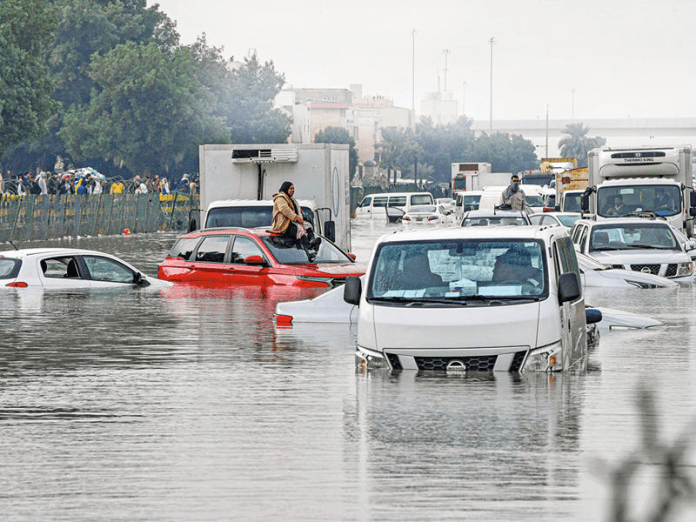The Ministry of Works has begun early preparation and is taking adequate measures to face off patchy torrential rains which more often than not disrupts life and vehicular traffic when the water outlets get clogged and the rainwater find no way of escape.
This, a local Arabic daily says, is due to the negligence of some government agencies, such as the municipality and the Public Authority for Agriculture Affairs and Fisheries Resources (PAAAFR) for failing to take adequate measures to unclog the sewers and clean the rainwater networks in addition to failing to penalize those who violate the laws and continue to dump waste where it should not be dumped.
The sources said violations are still ongoing, most notably the linkage of sewage networks and miscellaneous waste to the rainwater network, from government agencies and citizens, in addition to agricultural waste, which constitutes a major factor in the blockage of sewage drains, and costs the state huge sums of money annually to remove it.
She stated that construction waste constitutes an additional reason for the problem of closing sewers, as well as violations of building deep basements, many of which have sunk during previous years, stressing that this requires the municipality to reconsider the violating construction and deep basements violating building laws.
She explained that the “works” efforts, which were launched recently in preparation for the upcoming winter, remain unable on their own to contain the repercussions of these violations, and the failure of the relevant government agencies to play their role to prevent the disaster.
The sources confirmed that the ministry is currently racing against time to clean up the rainy communities in the various governorates after a budget was allocated to them in accordance with the maintenance sector plan, indicating that the “works” did not have a budget for nearly 4 years to clean up those communities.
She added that the initial work to clean the rain sewage shows a large accumulation of waste, which requires redoubled efforts during the period between the rainy season, pointing out that there are immediate, medium-term and long-term solutions to the problem of flooding the country due to rains and torrents, but it needs a budget of no less than 20 million dinars.
She pointed out that the Minister of Works Ali Al-Mousa directed the Civil Defense to print a guidebook so as not to conflict with the work of the state authorities that participate in rain preparations, in addition to training field teams to deal with those natural disasters, transferring equipment to critical areas and operating them, and ensuring their safety.
She revealed that Al-Mousa directed to launch an extensive campaign in various governorates to link the violating network to the rain network and violate individuals and trespassing entities, while stressing the need for the municipality to cooperate in cases of violating construction that cause disasters during the rains, and activating the role of the judicial police in detecting these violations and taking legal action in their regard.
Kuwait witnessed an exceptional winter in 2018, when the country was engulfed by heavy torrential rains and unprecedented amounts of rain recorded by the Meteorological Department in that year. During one day, Kuwait City recorded 58 millimeters of rain, which led to the sinking of many areas/
In a recurring tragic scene, the country was submerged last winter (2021) in a wave of rain that averaged 58.61 millimeters, and caused the closure of many roads and tunnels and the flooding of some buildings, schools, universities and facilities, and the matter culminated in the tunnels of Al-Ghazali, Al-Jahra and Al-Manqaf roads, which were closed by rain, and surrounded some Passengers who had to swim out of the lakes created by the water under the bridges.

















